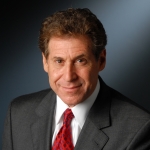By Paul Weidenfeld, March 4, 2016. An essential element of all compliance plans is developing and promoting “effective lines of communications.” In support of that element, Health and Human Services Office of Inspector General (HHS/OIG) has been urging providers to adopt anonymous compliance hotlines since 1998. CMS, on the other hand, actually requires that Fee-For-Service Contractors (by its 2005 Guidance), and Managed Care and Prescription Drug Contractors (through manual provisions) have “mechanisms that permits anonymous reporting.”
But many providers, while complying, view hotlines with suspicion. They fear that a “successful” compliance hotline might incentivize “whistleblowers” and ultimately result in additional risk and cost to their organization. Though understandable, this fear is misplaced. Properly implemented and supported, hotlines provide valuable support to compliance plans and overall risk management programs. Rather than increasing risk and costing money, compliance hotlines demonstrably decrease risk and save money. Here’s how:
I. Tips are the Most Common Means of Detecting Fraud
Fraud accounts for an estimated 10% of healthcare spending (almost $1 Billion in 2013). The best way to reduce fraud’s impact is through early detection and quick resolution. According to a recent report on occupational fraud by the Association of Certified Fraud Examiners (ACFE) “tips” are easily the most common means of detecting fraud. It found that over 40% of all cases were detected by a tip — more than twice the rate of any other detection method – and as the percentage of detections by tip increases, detection by other, external means decrease.
II. The Importance of Compliance Hotlines in Generating Tips
The ACFE report referred to above also looked at the impact of compliance hotlines on generating tips and it found that companies with compliance hotlines discovered fraud through tips 51% of the time as compared to 33% for companies that didn’t have a hotline. Not surprisingly, the companies without compliance hotlines also had higher rates of detection through other means such as external audits and law enforcement. Several factors are cited for the disparity, but the principle reason is the anonymity and confidentiality afforded by hotlines. Indeed, it was reported that 60% of all employee tips were anonymous.
III. Why Detection by “Tip” is Important
In addition to being the most common means, tips are the most cost-effective way of detecting fraud by external means. Several factors contribute to this, but the report found a significant difference in results for frauds detected by tips as compared to any other external detection method. For example, the median duration and cost of a fraud discovered by tip was 18 months and $150,000, whereas frauds detected by external audit or by accident lasted at least a year longer and cost over twice as much to resolve. Matters detected by law enforcement, a worst case scenario, lasted 30 months and cost $1,250,000!
IV. Compliance Hotlines Don’t Create “Additional” Problems
It is unrealistic to think that issues identified though a hotline would have “fixed themselves and gone away” or, perhaps, never have been found. More likely, the problem would continue unabated until it was discovered by accident or it was picked up by an audit (hopefully, an internal one), or until an employee who would have reported it lost faith in the organization’s ability to deal with the problem and aired his concerns outside the organization – perhaps to law enforcement, perhaps to a lawyer or maybe to both. Regardless, once a problem reaches that point, it is outside the control of the organization. Thus, any resolution will be a long time coming and expensive when it gets there!
V. Conclusion
Compliance Hotlines save organizations money. By increasing the number of tips, organizations can learn about more problems. This gives them the ability to respond to them sooner and fix them faster. Therefore, small problems won’t become big ones – and big problems can be managed before they become disasters!
Give us a call at 800-294-0952 or fill out the form below to hear how our cost-effective compliance hotline system can save your organization money!
Follow us on twitter to get all the latest news and updates on exclusion and compliance! https://twitter.com/@exscreening/
Paul Weidenfeld is the CEO of Exclusion Screening, LLC and co-founder with Robert W. Liles. Both Paul and Robert are long time health care lawyers and both were also former Health Care Fraud Coordinators for the Department of Justice. Call or contact Paul today at paul.weidenfeld@www.exclusionscreening.com, or at (800) 294-0952 if you have any questions.

